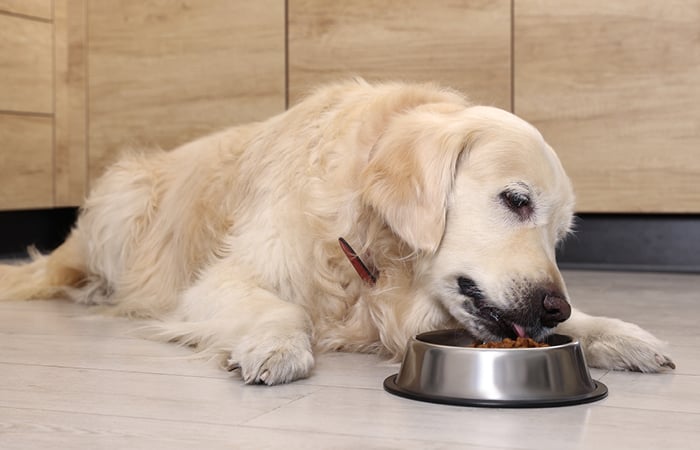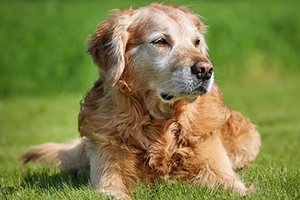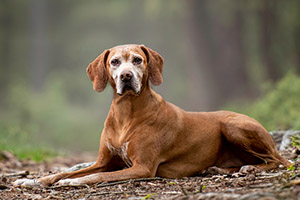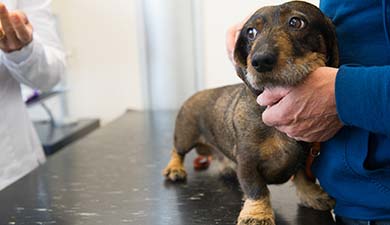Cognitive dysfunction syndrome (CDS) in dogs: what you should know
Quick Links
What are the signs of dementia in dogs?
Confusion and disorientation
Social changes
Anxiety and neediness
Appetite loss/increase
Toileting accidents
Sleep alterations
Your dog may sleep more during the day, and become more wakeful and noisy at night, perhaps pacing around with no purpose.
CDS in dogs can be difficult to spot, and it’s easy to misread these signs. A dog’s sleep cycle changes throughout their life. For instance: arthritis can make your dog more reluctant to move; disorientation may be due to failing eyesight or hearing loss; toileting problems could also signal a urinary infection or age-related incontinence. As ever, if you’re worried about any symptoms or behaviour changes in your dog, always talk to your vet.
When do dogs get dementia?
How is dementia in dogs diagnosed?
Are some dog breeds prone to dementia?
How to treat dementia in dogs
While there’s no cure for CDS, thankfully, it doesn’t shorten a dog’s life expectancy. Your vet will be able to advise you on a broad management plan to help slow the progress of the condition and allow your dog to get the best out of their days.
If appropriate, your vet may prescribe the drug selegiline hydrochloride, which increases antioxidant activity and has been shown to benefit dogs’ sleep cycles, toilet habits, activity levels and mood.
There are also supplements or formulated diets available that are designed to help maintain healthy brain function in ageing dogs. These typically include omega oils to improve antioxidant levels.
What is dementia in dogs?
How to calm a dog with dementia
Seeing signs of confusion or distress in an ageing pet can be heartbreaking – but there are a number of ways to help keep a dog with CDS as calm and contented as possible:
- Make sure home is a safe, happy place. Try not to carry out any major rearrangements around the house, unless an object has become a hazard for your dog. Keeping everything in its usual spot will help them feel confident in their surroundings.
- Keep your dog mentally stimulated – puzzle games, regular exercise and fun training activities will all keep those neurones firing. As long as it doesn’t distress your dog, ensure they get plenty of social interaction with their favourite human and four-legged pals.
- Stick to simple commands, and practise their basic training regularly – with treats – to refresh skills like recall.
- Wherever possible, keep walking an older dog to maintain their overall health – but if they’re prone to becoming disorientated, keep them close by or on a long lead. This is also a sensible precaution in case your dog becomes confused or fearful around other dogs and gets into confrontations.
- If your dog’s sleeping habits are changing or they’re howling at night, adapt your home and routine to help them cope.
- Don’t get cross about confused behaviour or toilet mishaps – remember, your dog is doing the best they can. Your patience and support can help them enjoy a healthy and comfortable old age.
Petplan is a trading name of Pet Plan Limited (Registered in England No. 1282939) and Allianz Insurance plc (Registered in England No. 84638), Registered office: 57 Ladymead, Guildford, Surrey GU1 1DB.
Pet Plan Limited is authorised and regulated by the Financial Conduct Authority. Financial Services Register No. 311969. Allianz Insurance plc is authorised by the Prudential Regulation Authority and regulated by the Financial Conduct Authority and the Prudential Regulation Authority. Financial Services Register No. 121849. Pet Plan Limited is a subsidiary of Allianz Insurance plc.
















